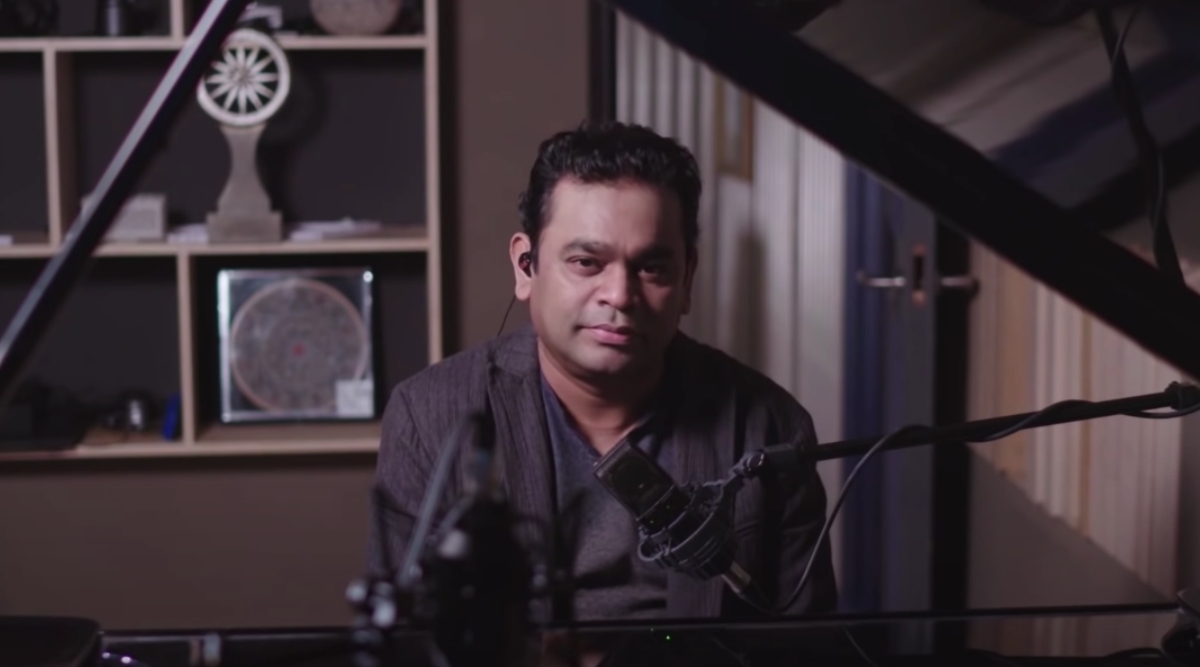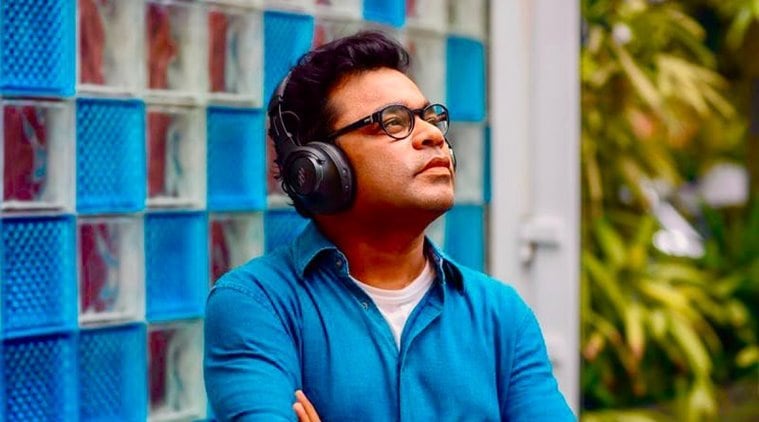 AR Rahman imparted some precious lessons about music in this candid chat.
AR Rahman imparted some precious lessons about music in this candid chat. In what can easily be described as a treat for music lovers, maestro AR Rahman and singer Arijit Singh recently sat down for a virtual conversation about the Oscar-winning music composer’s craft. Arijit asked the questions, and Rahman patiently decoded his musical ideology, his methodology, his collaborations, the changing times and the path that his career has taken among many other things.
Here are 10 things that AR Rahman revealed in his chat with Arijit Singh:
1. Cultural influences in AR Rahman’s music
Arijit Singh curiously asked AR Rahman as to how his music feels Indian but has influences of the West as well. To this, Rahman said, “We are all multicultural.” He shared that even though our basic foundation is that of Indian culture, there are influences of the British, the Mughals and many others that have left an impression on us. Rahman went on to share that when he started working in the music industry, “it was mostly Indian and folk but the scoring used to have a western, more symphonic influence.” But for his music, he never segregated it as Indian or western, he only did what came to him organically, and that speaks about the global cultural influence that has had an impact on him.
2. The spiritual quality in AR Rahman’s music
Many of AR Rahman’s fans have always mentioned the spiritual feeling that his music evokes. So, when Arijit asked him about the same, Rahman said he likes to isolate himself while working as he does not want to get distracted by the mundane activities of life. Famous for working at night, Rahman said that he does so primarily because no one disturbs him at that hour. He described the spirituality in music as the “realm of the unknown where you want to be helpless and you want to be free from everything, from even living.” The composer-singer said that we are all living in chaos almost all the time, so the least he can do for his listeners is to transport them to a surreal world as they are listening to his music.
3. Rahman’s famous collaborations
At various points in the conversation, Rahman shared anecdotes about the making of certain songs. He talked about his collaboration with filmmakers like Mani Ratnam, Shankar, Aanand L Rai, Imtiaz Ali, Ashutosh Gowariker and Ram Gopal Varma. He also shared anecdotes of working with great lyric writers like Gulzar and Prasoon Joshi and how their influences have uplifted his music. Rahman also played many of his songs during the chat. For those who pay attention to details in Rahman’s music, Rahman explained the usage of particular instruments, a certain loop, or a certain raga that uplifted a particular song.
4. Timelessness of music
Since this was a conversation between two contemporary musicians, they discussed the trends of music wherein Rahman said that music is timeless. There is no such thing as today’s music or yesterday’s music. He spoke about Nusrat Fateh Ali Khan’s compositions which are being reworked till date, and they are still successful because of the music and attention to lyrics.
5. Tips for budding composers
Arijit asked AR Rahman for a few tips for those who want to produce music or compose, and Rahman simply said that it is a “trial and error” process. He said that firstly, everyone who wants to be in the field should listen to a lot of good music and “develop their mind and heart into a very high sonic.” Rahman shared that after they have a sharp ear and they start producing, they will themselves know if something is working or not. “It’s a vibe thing. There are no technical explanations,” he said.
 AR Rahman’s conversation with Arijit Singh is a masterclass in music. (Photo: AR Rahman/Instagram)
AR Rahman’s conversation with Arijit Singh is a masterclass in music. (Photo: AR Rahman/Instagram)
6. Value of music
Arijit Singh and AR Rhaman both spoke of the time when as kids, they used to save money to buy cassettes but that era has gone by, and now people get music readily on their phones. Rahman said that since we get everything for free, our mind has to take the decision to “value music”. Arijit shared that when he used to save money and buy cassettes, the value of each song was so much more because he had carefully invested money in an album. He added that since everything is for free now, we don’t value it as much.
7. AR Rahman’s contribution to society
AR Rahman spoke about the infrastructure of the music industry and said that as someone whom people know for his music, it is up to him to encourage budding talent in the industry. He explained that this was the thought behind building the music conservatory so kids could hone their craft and could pursue a career in music. Rahman shared that many kids from his conservatory are now grown up, and some of them even played instruments in his recent album, Dil Bechara.
8. Formulaic music in the present-day
AR Rahman said that the commercial aspects of music need to be balanced with the art of it, and he has tried to do so many times. He shared that many times he has given the producer what is required, and then, he also gives him a free track, but the free track is something that Rahman wants to do. “No one says no to a freebie,” Rahman remarked. He added that everyone is becoming a part of a herd, and most of them just want to follow a trend and not try something new.
9. Hearing music vs watching it
AR Rahman pointed out that in the last few years, people have started watching music in the form of music videos, instead of hearing it the way it should be heard. He shared that there are very few people who experience music with headphones on and spend time with it so it can grow on them.
10. Corporates in the music industry
AR Rahman credited his followers and fans for knowing “exactly what they want”, but said that the system, which is curating the music, has to change. He remarked that corporate ideas are “damaging” the music industry.